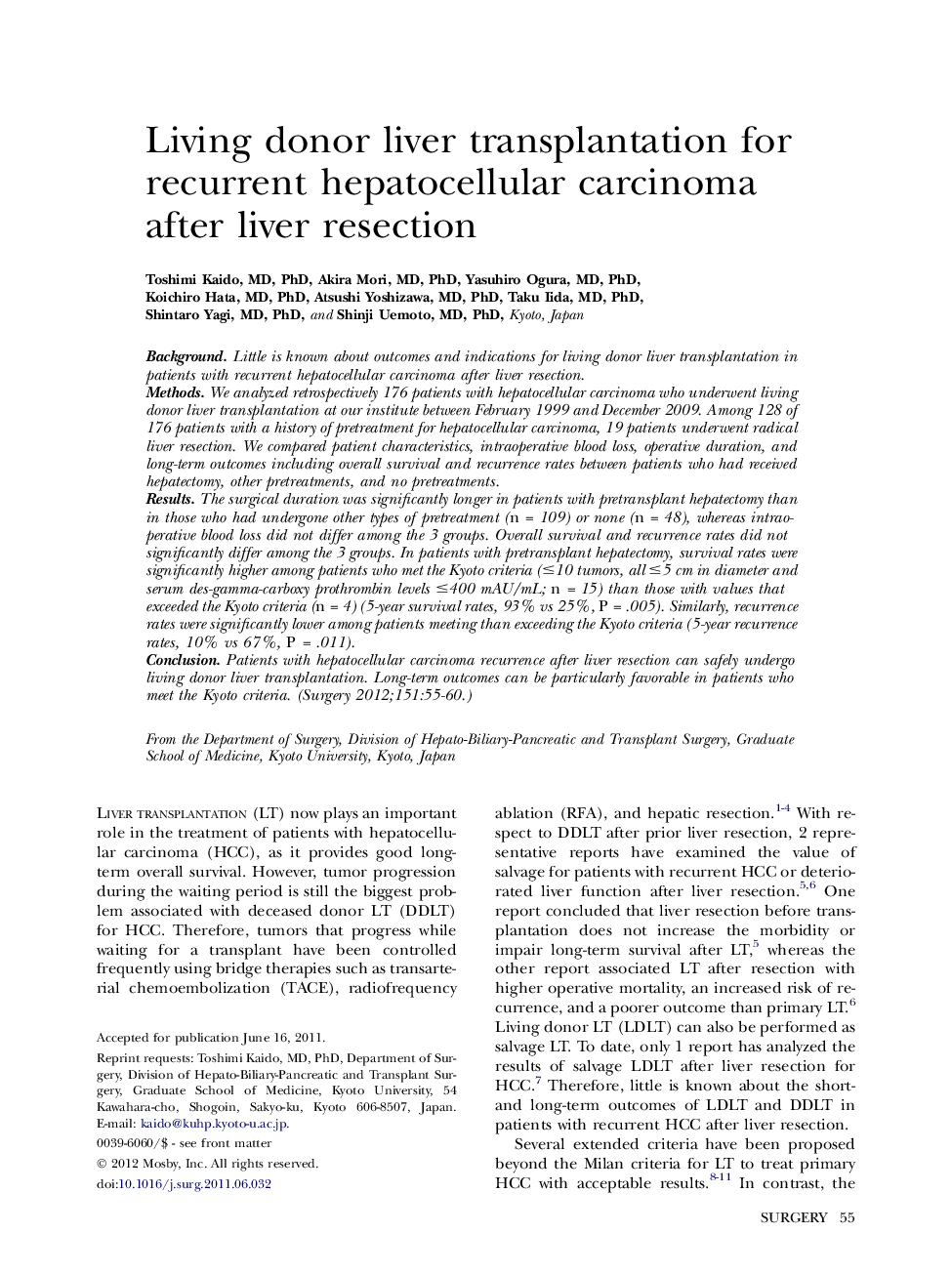| Article ID | Journal | Published Year | Pages | File Type |
|---|---|---|---|---|
| 4308642 | Surgery | 2012 | 6 Pages |
BackgroundLittle is known about outcomes and indications for living donor liver transplantation in patients with recurrent hepatocellular carcinoma after liver resection.MethodsWe analyzed retrospectively 176 patients with hepatocellular carcinoma who underwent living donor liver transplantation at our institute between February 1999 and December 2009. Among 128 of 176 patients with a history of pretreatment for hepatocellular carcinoma, 19 patients underwent radical liver resection. We compared patient characteristics, intraoperative blood loss, operative duration, and long-term outcomes including overall survival and recurrence rates between patients who had received hepatectomy, other pretreatments, and no pretreatments.ResultsThe surgical duration was significantly longer in patients with pretransplant hepatectomy than in those who had undergone other types of pretreatment (n = 109) or none (n = 48), whereas intraoperative blood loss did not differ among the 3 groups. Overall survival and recurrence rates did not significantly differ among the 3 groups. In patients with pretransplant hepatectomy, survival rates were significantly higher among patients who met the Kyoto criteria (≤10 tumors, all ≤5 cm in diameter and serum des-gamma-carboxy prothrombin levels ≤400 mAU/mL; n = 15) than those with values that exceeded the Kyoto criteria (n = 4) (5-year survival rates, 93% vs 25%, P = .005). Similarly, recurrence rates were significantly lower among patients meeting than exceeding the Kyoto criteria (5-year recurrence rates, 10% vs 67%, P = .011).ConclusionPatients with hepatocellular carcinoma recurrence after liver resection can safely undergo living donor liver transplantation. Long-term outcomes can be particularly favorable in patients who meet the Kyoto criteria.
